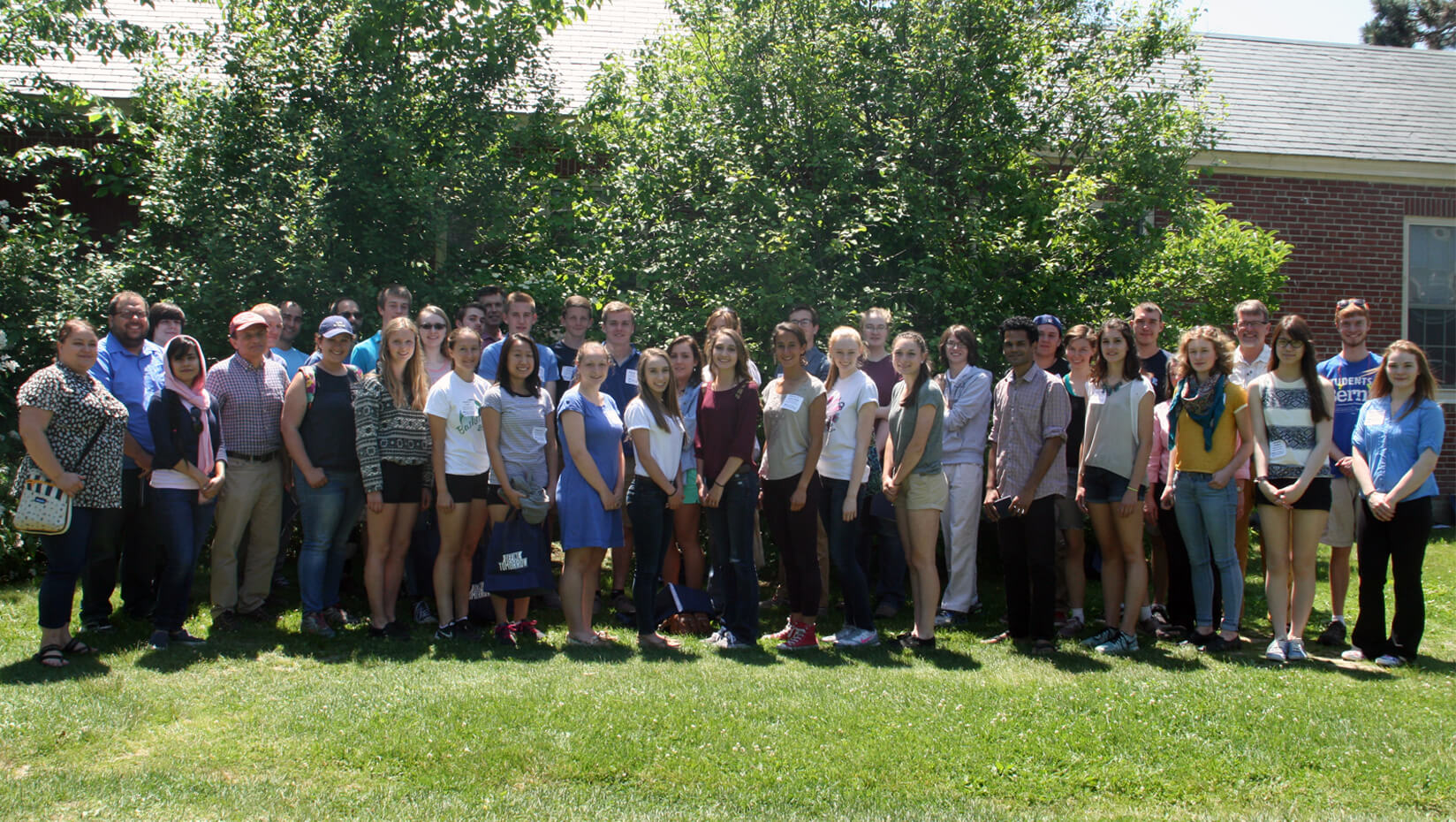
High school youth gain summer STEM experiences at UMaine
This summer, the Maine EPSCoR High School Research Internship Program celebrates its 10th year of engaging high school students in collegiate-level STEM (science, technology, engineering and mathematics) opportunities.
Students, who are currently engaged in research in their respective fields of interest, will present posters on their findings 2–4 p.m. Wednesday, Aug. 17, at the Mitchell Center for Sustainability Solutions, Room 107 in Norman Smith Hall.
Barbara Cole, professor and chair of chemistry at the University of Maine, founded and coordinates the program.
“I think the level of the work that the students are capable of is amazing; for them to have an avenue is a magnificent opportunity. I’ve seen many capable of graduate and Ph.D. level work,” she says.
Cole created the program so high-achieving area high school students could have enriching STEM experiences outside the classroom. At the beginning, the internship’s capacity was nine students — all from the Orono school system. Today, between 40–60 youth apply annually and about 25 students are selected from schools within commuting distance to UMaine.
Laurie Bragg, outreach and program manager at Maine EPSCoR at UMaine, joined Cole in 2013. While overseeing the internship program, she’s witnessed how it helps students realize their interests and strengths.
“I’ve seen the value in the program for the students; it provides them with the opportunity to work in the labs and to see potential career paths in STEM that they would otherwise not be exposed to until well into their college career,” says Bragg.
Cole says the best thing about the program is that it enables students to experience real-world science.
“This is true at a university level too; in classes we know what’s going to happen, we’ve designed experiments for students to learn specific things,” she says.
“Students in this program get to see how research really works, and that sometimes things work, sometimes they don’t. Teaching kids earlier rather than later makes them become better scientists. And for that matter, it helps some decide whether or not they even want to be scientists.”
Participants also are introduced to science ethics. The program is intended to build integrity, test comfort zones and inspire curiosity.
While STEM can be challenging, Cole says scientists build community when they work together to find solutions.
“It’s a way to have students see learning up close and personal; when you walk into the lab, we’re all struggling,” she says. “Your results are not always going to agree with what everyone else thinks you’re supposed to be getting, but that’s part of the deal.”
Contact: Andrea Littlefield, 207.581.2289
